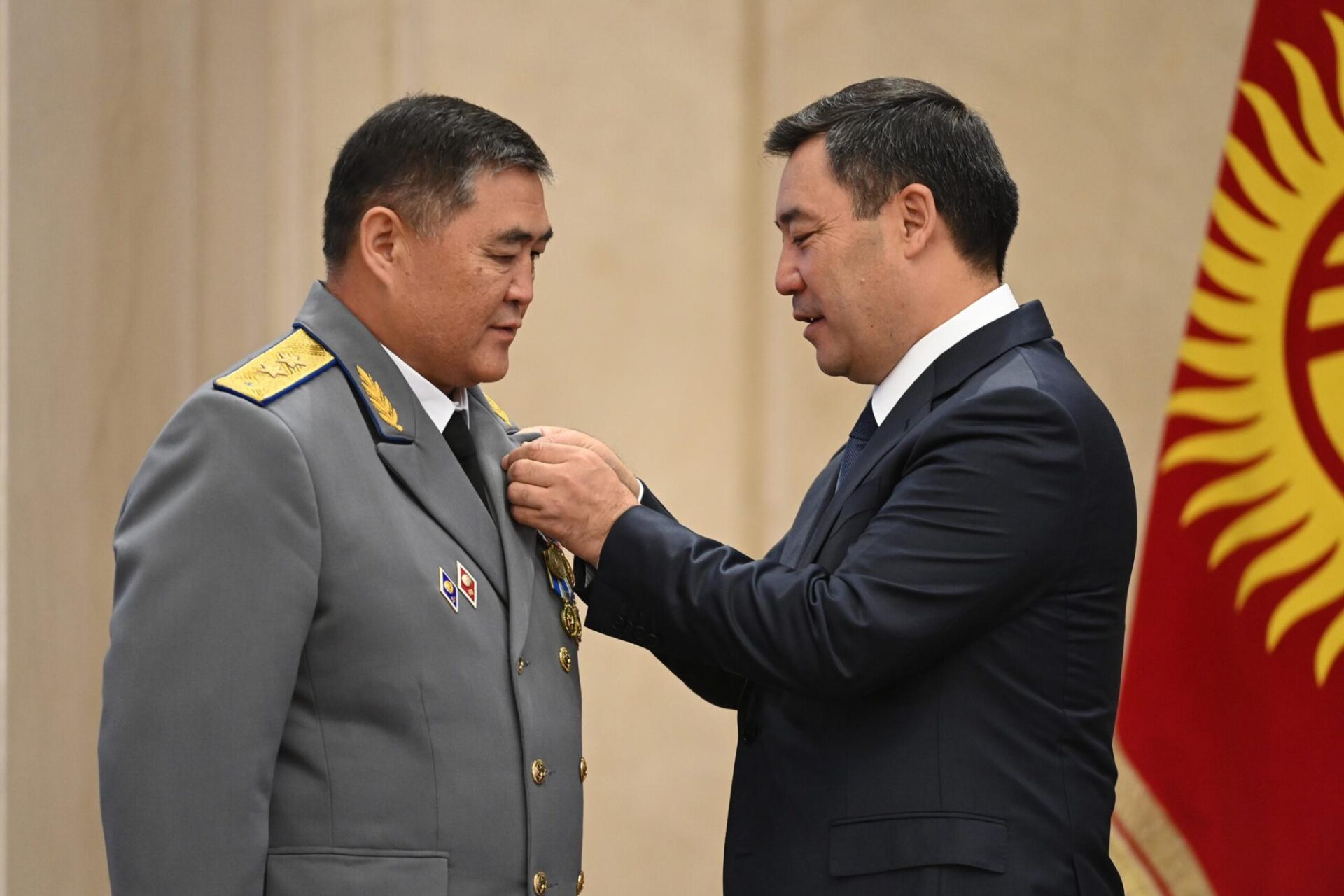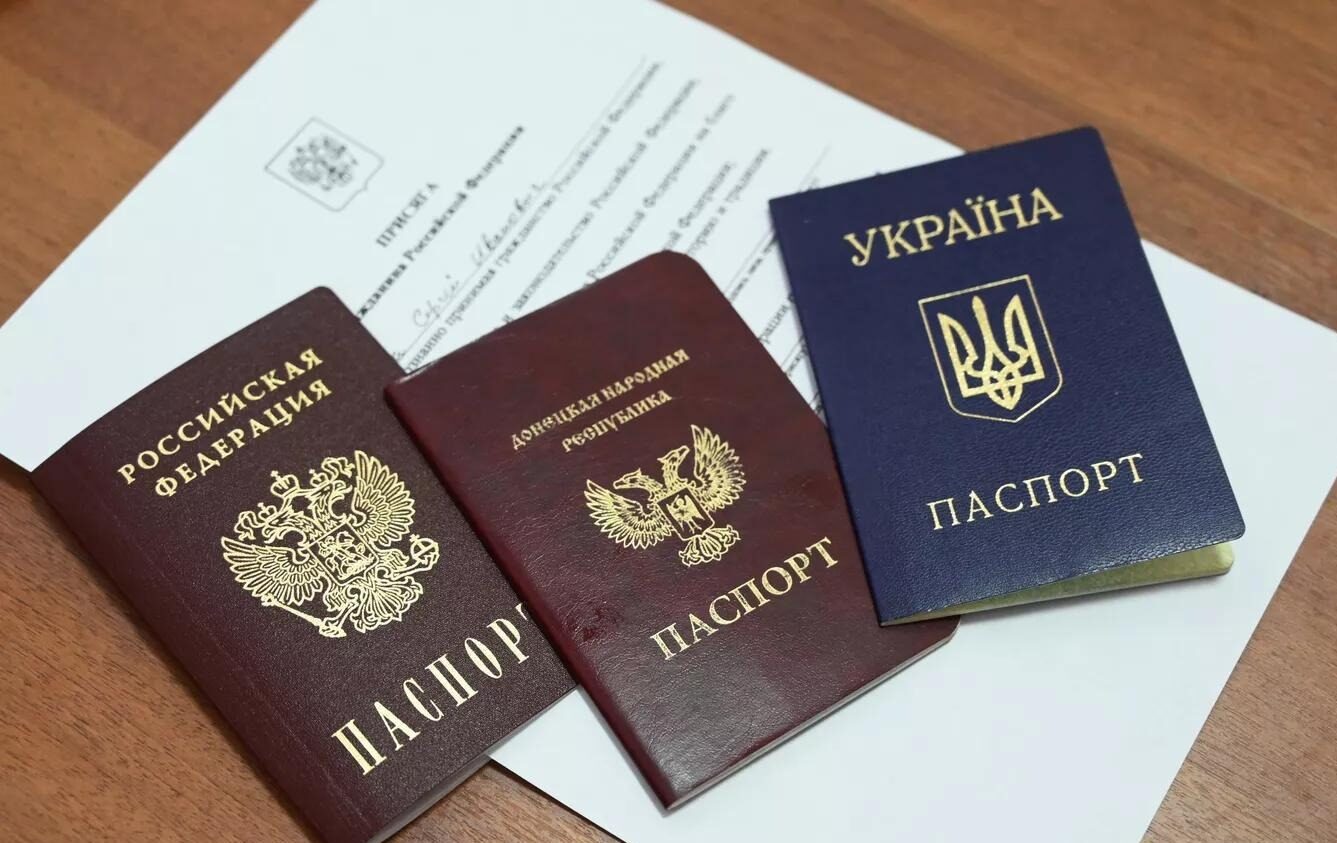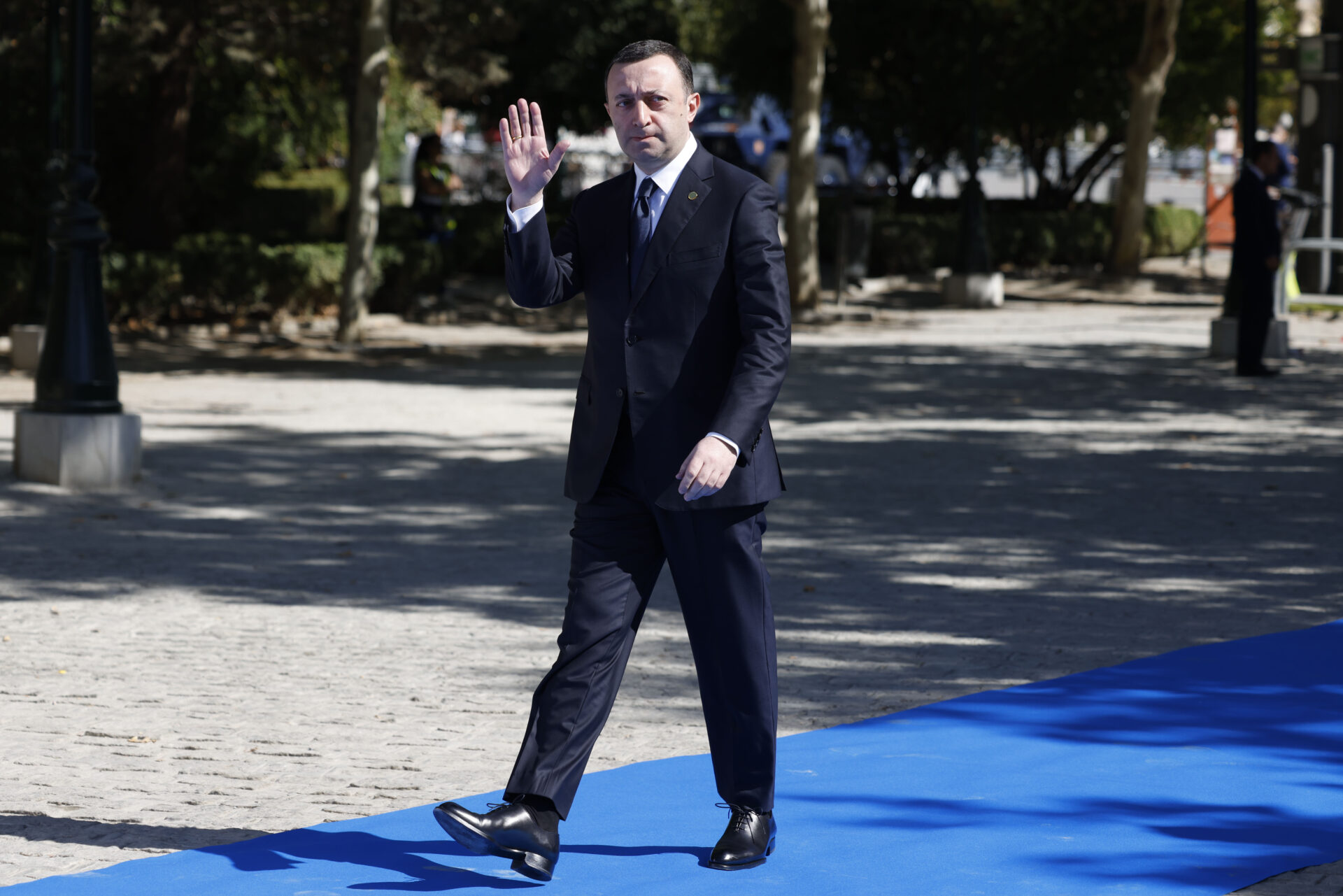
Kyrgyzstan’s Media Crackdown Sign of Deepening Authoritarianism
Kyrgyzstan’s Media Crackdown Sign of Deepening Authoritarianism
Executive Summary:
- Kyrgyz President Sadyr Japarov’s government’s October 27 designation of leading independent outlets Kloop and Temirov Live as extremist marks a watershed step in the country’s rapid closure of media space.
- Kyrgyzstan’s independent media and active opposition had long served as checks on Bishkek. Japarov and his closest ally, Kamchybek Tashiev, have systematically eroded these pillars to consolidate their rule.
- While parliamentary elections may have served as the cornerstone of resistance movements in 2005 and 2020, the diminished state of parliament today, coupled with a silenced media and subdued elite, makes pushback against Japarov in the upcoming November 30 elections unlikely.
On October 27, the Oktyabrsky District Court in Bishkek declared the independent outlets Kloop and Temirov Live—as well as its affiliated channel Ait, Ait Dese—extremist. This act marks the first such designation against media outlets in Kyrgyzstan’s history (24.kg, October 27; Kloop, October 28). Temirov Live and Kloop have been targets of the Kyrgyz government since Sadyr Japarov rose to the presidency in 2020, and their investigations into corruption among senior Kyrgyz officials, including the new president, have forced both outlets into exile (see EDM, October 20, 27, 2020; YouTube/@TemirovLIVE, September 11, 2023, May 28, 2024, March 28; Kloop, April 17, 24, July 11).
The court’s decision codifies a process that began in 2022, when Kyrgyz police first raided Bolot Temirov’s office. Now, the “extremist” label officially bans the publication and distribution of Kloop’s and Temirov Live’s work on Kyrgyzstan’s territory (YouTube/@TemirovLIVE, May 22, 2022; Kloop, November 23, 2022; Bishkek City Prosecutor, August 22, 2023; Kloop, September 7, 2023). The Kloop and Temirov Live cases are emblematic of Kyrgyzstan’s shrinking political space. For example, in 2024, Kyrgyzstan passed a law on funding for non-governmental organizations (NGOs) modelled directly after Russia’s “foreign agents law,” despite widespread domestic and international criticism (IPHR, March 20, 2024; Government of Kyrgyzstan; CPJ, April 2, 2024). Japarov’s crackdown on independent media outlets and non-governmental organizations (NGOs) has led to a decline in Kyrgyzstan’s global score in the Reporters Without Borders’ Press Freedom Index, from 82nd in 2020 to 144th in 2025 (Reporters Without Borders, accessed November 9). Japarov and his closest ally, Chairman of the State Committee for National Security (GKNB) Kamchybek Tashiev, have swiftly repressed all independent voices, hoping to forestall the type of popular uprisings that toppled past Kyrgyz leaders.
Popular uprisings often defy simple explanation. In Kyrgyzstan, overt nepotism and corruption, elite fissures, economic stagnation, and electoral falsifications contributed to the ousters of past leaders (DW, October 7, 2020; Mediazona.ca, April 10, 2024; 24.kg, April 7). Each previous Kyrgyz president—Askar Akayev (1991–2005), Kurmanbek Bakiyev (2005–2010), Almazbek Atambayev (2011–2017), and Sooronbay Jeenbekov (2017–2020)—unsuccessfully attempted to establish the type of consolidated authoritarian regime common in the post-Soviet space (Radio Svoboda, April 5, 2006; Carnegie Berlin, March 31, 2012; 24.kg, December 7, 2018; Meduza, August 9, 2019). [1] In the past, Kyrgyzstan’s independent media and NGOs, competitive parliamentary system, and rival elite networks served as checks, if imperfect, on the center. Japarov and Tashiev have built a new model of power, however, by hollowing out each of these pillars. Their success is not rooted in building a more competent or less corrupt government. Rather, it is rooted in dismantling the systems that held their predecessors accountable.
Unlike other Central Asian republics, Kyrgyzstan’s parliamentary system often provided genuine political competition and debate. For example, the Organization for Security and Co-operation in Europe (OSCE) praised the 2010 and 2015 parliamentary elections for their “further consolidation of the democratic process,” and “vibrant campaigns” (OSCE, December 20, 2010, October 5, 2015). In 2005 and 2020, Akayev and Jeenbekov were ousted following widespread anger over fraudulent parliamentary elections (Current Times, October 2, 2020; Asia-Plus, October 14, 2020). Recognizing parliament’s ability to mobilize both elites and the public to challenge the presidency, one of Japarov’s first moves upon coming to power was to amend Kyrgyzstan’s constitution and introduce a super-presidential system (see EDM, March 3, 2021). The amendments eliminated the president’s one-term limit, reduced the parliament’s size by 25 percent, gave Japarov the power to appoint judges and heads of law enforcement agencies, and established a parallel “consultative” body called the “People’s Kurultai,” which Japarov has direct authority over (Government of Kyrgyzstan, April 11, 2021; DW, April 12, 2021).
These changes effectively stripped Kyrgyzstan’s parliament of its authority and autonomy, making its decreased role in society immediately visible. The November 2021 parliamentary elections saw a record-low voter turnout—just 34.6 percent of eligible voters participated—with the OSCE noting that “constitutional changes weakening parliament, subsequent extensive legislative changes to key aspects of the elections, a stifled campaign, and overall voter disillusionment hindered meaningful engagement” (OSCE, May 26, 2022). Akayev’s and Jeenbekov’s attempts to illegally subordinate parliament through election manipulation frustrated the public and led to mass elite defections. Japarov learned from these failures. During an October 8 interview with the Kyrgyz National Information Agency (Kabar) to mark the 5-year anniversary of his rise to power, Japarov crystallized his narrative on diminishing the parliament, stating that “the parliamentary form of government … almost destroyed the state” (Kabar, October 8). Authoritarian leaders often conflate themselves with the state, viewing their personal rule, interests, and power as synonymous with those of the nation itself. Kyrgyzstan’s parliamentary system did not threaten the state, but rather diluted the president’s power, which was unacceptable for Japarov. By framing the new system as “saving the nation,” he creates a veneer of popular, legal consent to his consolidation, making it far more resilient to criticism.
In his 2016 book, The State as Investment Market: Kyrgyzstan in Comparative Perspective, Johan Engvall writes that Kyrgyz political institutions are akin to a marketplace. Public office is bought and sold by state authorities for personal enrichment, to provide protection for favored businesses, and to fulfill obligations based on family or kinship (Engvall, 2016). [2] Kyrgyzstan’s elites are effectively divided between those from the north and those from the south of the country, and past Kyrgyz presidents often alienated elite networks from the region opposite their own (24.kg, October 8, 2007; Eurasianet, September 25, 2019; Carnegie Moscow, October 8, 2020). For example, key political and business elites during Akayev’s presidency almost exclusively came from his home region in Kyrgyzstan’s north, but by 2006—just a year into southerner Bakiyev’s presidency—there was not a single high-ranking official left from the north (Ismailbekova, 2021). [3] Northern elites, frustrated at being sidelined by Bakiyev, sought to re-establish their dominance and played a large role in his ouster in 2010 (Congressional Research Service, June 15, 2010).
The “tandem” rule of Japarov and Tashiev addresses this issue. Japarov, representing the north, and Tashiev, representing the south, have largely bridged Kyrgyzstan’s divided elites and kinship networks. In the past, many elites offered support—even if only rhetorically—to protesters and independent outlets to check the executive. The tandem rule of Japarov and Tashiev, however, unites Kyrgyzstan’s two poles of informal power at the top, neutralizing the country’s main outlet for elite defection and removing the regional elite’s reason to support democratic processes (24.kg, September 6, 2022).
In addition to co-opting elites into their patronage structures, Japarov and Tashiev have leveraged their positions to coerce business and political elites through a process called kusturizatsia (кустуризаця, vomiting) (Kursiv Media, May 16, 2024). Japarov introduced kursturizatsia ostensibly as a means for combating corruption. Under this practice, business leaders, state officials, and criminal networks that have been deemed to have acquired their wealth illegally are able to voluntarily pay compensation for harming the state to avoid arrest (24.kg, June 16, 2023; The Diplomat, September 1, 2023). This practice, however, manifests as state-led extortion. Only Japarov and Tashiev have the power to determine who earned their money illegally, and lists of who, how much, and where they paid money to this program have not yet been made public (24.kg, October 15, 2024). In 2021, Kyrgyz lawyer Nurbek Toktakunov noted that funds acquired under this practice were not being transferred to the state budget. Instead, they were “stolen or used for narrow political purposes by the ruling elite” (Kaktus.media, September 23, 2021). Rather than rooting out illegal sources of funds, kusturizatsia has institutionalized corruption and informal practices in an arbitrary manner that appears to benefit only Japarov and Tashiev (Ismailbekova, 2024). [4]
On September 25, the Kyrgyz parliament voted unanimously to dissolve itself and call for snap elections, ostensibly to space out future parliamentary and presidential campaigns (Parliament of Kyrgyzstan; Eurasianet, September 25). Five days later, Japarov announced that the elections would take place on November 30 and that he would “personally control them from beginning to end as arbitrator” (YouTube/@AlaToo24UTRK, September 30). Tashiev further added that “any fraud will be exposed, and the punishment will be the harshest” (24.kg, October 3). Japarov and Tashiev’s direct involvement reinforces their efforts to dominate all aspects of the Kyrgyz political system. While parliamentary elections may have served as the cornerstone of resistance movements in 2005 and 2020, their diminished state today, coupled with a silenced media and subdued elite, makes pushback against Japarov unlikely. In his assessment of the upcoming elections, Bolot Temirov argued that they can only benefit Japarov and Tashiev, saying:
In recent years, the president’s entourage and the head of the State Committee for National Security have acquired money, and now want to show off their deputy badge … Mandates have long since become a commodity, and parliamentary seats are for sale (Times of Central Asia, October 7).
Perhaps Japarov’s biggest threat is Tashiev himself. The tandem system relies on continued partnership, and while durable so far, there have long been rumors that Tashiev’s main goal is to one day secure the presidency for himself (Kaktus Media, October 11, 2021; nlk.kg, October 6, 2022; Kloop, October 25, 2023; Current Times, December 18, 2023; vb.kg, December 10, 2024; 24.kg, July 17). For now, however, the tandem appears stable. With Tashiev offering support for Japarov’s second term, the November 30 parliamentary elections are unlikely to cause a rift between Kyrgyzstan’s leading men or challenge their power in any serious manner (Economist.Kg, December 17, 2024).
Notes:
[1] After Bakiyev’s ouster in 2010, Roza Otunbayeva served as the interim head of government from April to June, and President of Kyrgyzstan from June 2010 until December 2011. She was constitutionally barred from running for re-election during the 2011 presidential election, and due to the transitional nature of her rule, she is considered not to have possessed the same level of power as Kyrgyzstan’s other presidents.
[2] Engvall, Johan. The State as Investment Market: Kyrgyzstan in Comparative Perspective. University of Pittsburgh Press, 2016. https://doi.org/10.2307/j.ctt1f89t25.
[3] Ismailbekova, Aksana, Informal governance, ‘clan’ politics and corruption, In: Isaacs, Rico; Marat, Routledge Handbook of Contemporary Central Asia, Routledge, London, New York, 2021, p. 87-100. https://doi.org/10.4324/9780429057977-9.
[4] Ismailbekova, Aksana. Tandem Politics and Kusturizatsia: Power and Money in Contemporary Kyrgyzstan. Anthropology Today, 2024. https://doi.org/10.1111/1467-8322.12926.


